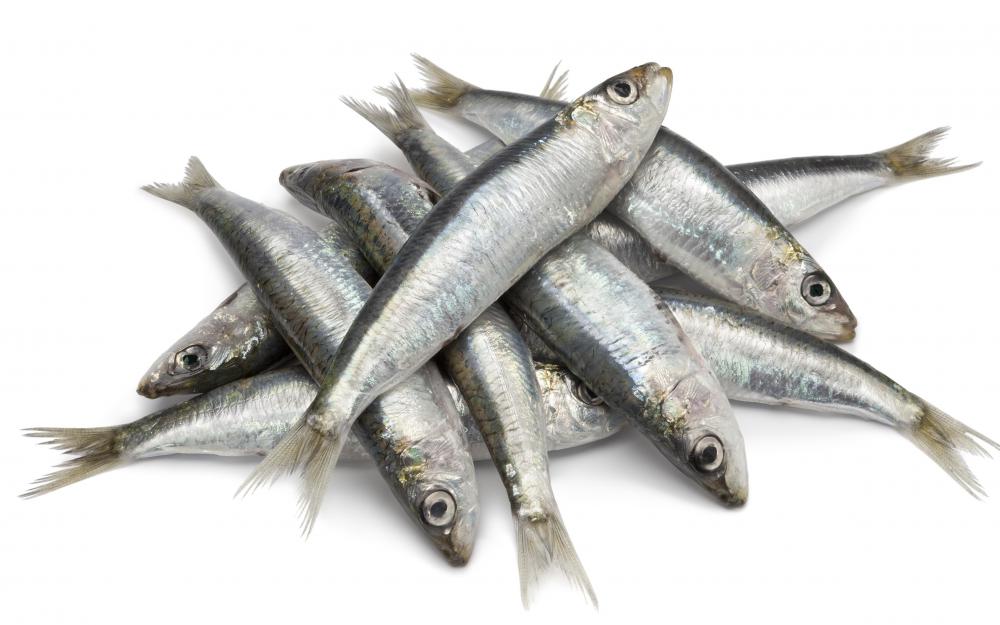At WiseGEEK, we're committed to delivering accurate, trustworthy information. Our expert-authored content is rigorously fact-checked and sourced from credible authorities. Discover how we uphold the highest standards in providing you with reliable knowledge.
How Do I Choose the Best Fatty Acid Supplement?
A fatty acid supplement is a dietary supplement intended to supply omega-3 fatty acids, a substance found in fish and plant foods known for its many health benefits. Available in capsule or oil form, this supplement is commonly derived from fatty fish like salmon, mackerel, and sardines; flaxseed, the seeds of the flax, a wheatlike plant; or krill, a small ocean-dwelling crustacean that is related to shrimp. The best fatty acid supplements should be rich in at least two of the essential fatty acids, which are nutritionally necessary substances that are not manufactured by the human body. These include eicosapentaenoic acid (EPA), docosahexaenoic acid (DHA), and alpha-linolenic acid (ALA), with EPA and DHA, which are found in algae-consuming marine foods, considered the most beneficial in a fatty acid supplement.
Omega-3 fatty acids have in recent years been touted for their many health benefits, particularly EPA and DHA. A component of unsaturated or “healthy” fats found in food, these omega-3s are linked to reduced cardiovascular disease, improved neurological health, improved health of the eyes, and reduced bodily inflammation, which in turn has been connected to weight loss and cardiovascular health. Though there is another type of essential fatty acid common in unsaturated oils, omega-6 fatty acid, it is not said to produce the same health benefits as omega-3s. In fact, recent research has suggested that to reap the health benefits of essential fatty acid consumption, it is the ratio of omega-3s to omega-6s in the diet that is most important, with the recommended ratio being roughly 3:1 or 4:1 omega-3s to omega-6s. The western diet, by contrast, is said to average a 1:10 or greater ratio of omega-3s to omega-6s, a ratio that has been linked to increased bodily inflammation, obesity, and cardiovascular disease.

For these reasons, many nutrition experts suggest taking a fatty acid supplement that is rich in omega-3s, particularly for individuals who do not eat fatty fish like salmon, herring, mackerel, and anchovies. A common supplement type is the fish oil supplement, which is derived from these cold-water fish and is available in oil and capsule form. As experts recommend that adults take at least one gram and up to three grams combined of EPA and DHA daily, it is important to pay attention to the acid content rather than the quantity of oil in the supplement. The best fish oil supplements will contain as much of these acids as possible. Ideally, this fatty acid supplement will also be low in mercury and other heavy metals as indicated on the label.

Another newly discovered source of omega-3s is krill, a tiny, bug-like marine crustacean. Krill oil, also available in capsule form, is said to be not only dense with EPA and DHA but also rich in astaxanthin, a type of antioxidant known as a carotenoid. It may be a cost-effective alternative to fish oil as a fatty acid supplement for the density of fatty acids in a given unit of oil. Flaxseed oil is yet another popular source of omega-3s, but as it only contains the fatty acid ALA experts recommend consuming it in addition to a diet rich in or supplemented with fish oils.
AS FEATURED ON:
AS FEATURED ON:














Discuss this Article
Post your comments